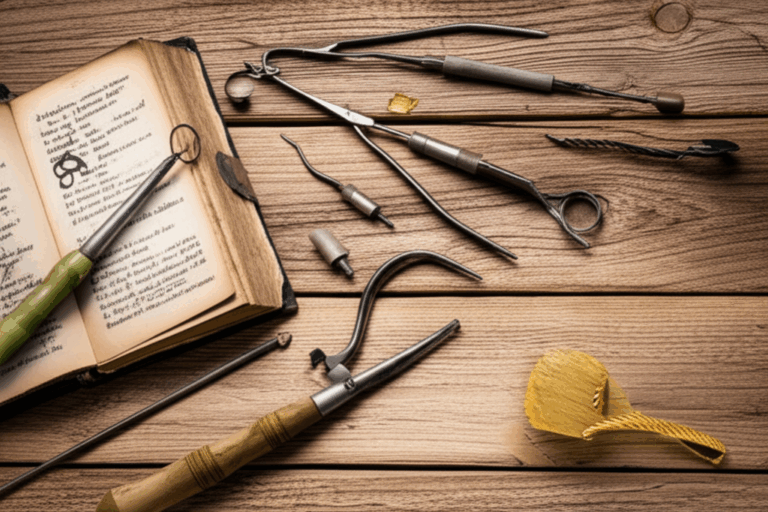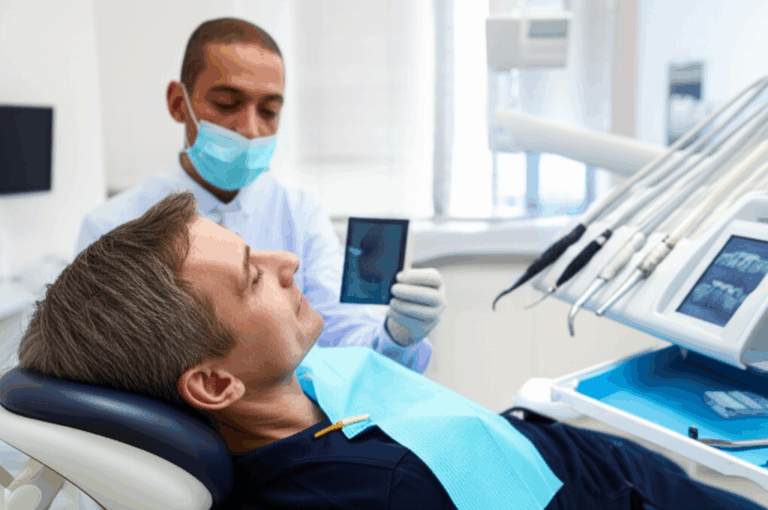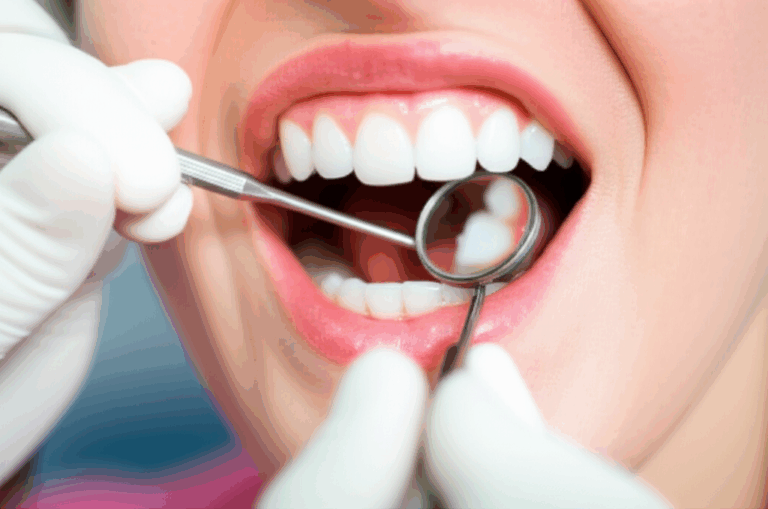
Can Dentists Have Tattoos? Navigating Professionalism, Patient Perception, and the Modern Dental Workplace
That little buzz of excitement when you see a new tattoo you like—it’s something many of us feel, even people who work in healthcare. But if you’re a dentist, a dental student, or hoping to have a dental career, you might wonder: “Can dentists have tattoos—really, or will it hurt my job chances?”
You’re not the only one thinking about this. With tattoos becoming more common (especially for younger folks), lots of dental professionals are asking what it really means to “look professional.” Is it okay for a dentist to have tattoos people can see? Will your patients care, or could it even help you connect with them? Let’s go through the facts, clear up some myths, and help you decide what’s best for you.
In This Article
- The Changing Face of Professionalism in Dentistry
- Rules, Guidelines, and Practice Policies
- How Tattoos Affect Patient Perception and Trust
- What Tattoos Mean for Your Dental Career
- Tips and Best Practices for Tattooed Dentists
- Key Takeaways and Your Next Steps
The Changing Face of Professionalism in Dentistry
Tattoos in Healthcare: Past, Present, and Future
There was a time when tattoos were mostly seen on sailors, rock stars, or rebellious teens. But now? About 30–40% of adults under 40 in the U.S. have at least one tattoo. That’s very different from the days when even a little bit of ink could get you in trouble at the dental office.
How things are today: Tattoos have turned into a normal way for people to show who they are. You’ll see teachers, lawyers, people in business, and yes—even doctors and nurses—with tattoos. The world of dentistry is changing too. Some old rules still stick around, but what counts as “professional” is less strict than it used to be.
In the past, tattoos could make employers or patients worried. People thought that body art didn’t look professional, might make patients trust you less, or could be bad for a business’s image. This counted a lot in jobs like dentistry, where first impressions matter.
But now, things are starting to change. Many clinics are rethinking what their workers should wear, and some are being more open. Still, there’s no one answer. Whether your tattoo is accepted depends on how big, where it is, what it looks like, and most of all, where you work.
Tattoos in Dentistry: The Bigger Picture
Other healthcare places are looking at the same issues as dental offices:
- How much can people show their style at work?
- Will tattoos bother patients?
- Is professionalism more about how you look, or how good you are at your job?
So, if you’re worried that tattoos could hurt how people see you as a dental professional, remember: you’re just one part of a bigger, changing story.
Rules, Guidelines, and Practice Policies
What Do Official Dental Organizations Say?
Here’s something to make you feel better: There is no rule that says dentists can’t have tattoos. If you look at the American Dental Association (ADA) or the UK’s General Dental Council (GDC), you won’t find any rules saying tattoos are forbidden for dentists, hygienists, or assistants.
These groups care much more about how well you treat patients, your ethics, and how clean you are—not about your tattoos. So if you:
- Treat your patients kindly
- Follow the rules about cleaning and infection
- Put your patients first
…a tattoo isn’t likely to get you in trouble with the people who make the big rules.
But, most dental clinics or businesses have their own set of rules, especially about tattoos that can be seen.
What Do Individual Dental Practices and Employers Expect?
It’s really up to each office owner or manager. Things they think about:
- The clinic’s dress code
- The owner’s own views
- What kinds of patients they have
- Where the office is located (big city clinics may be more relaxed than small-town ones)
Some places have strong rules saying you should cover your tattoos at work, especially if they are big or very bright. Other clinics care more about stuff like if a tattoo could upset someone, or if it could distract the patient.
Example: A dental office in a big city where most patients are younger or work in tech might not care if you have a tattoo sleeve. In a small, traditional town, even a small wrist tattoo might surprise some people.
Do Dental Schools or Training Programs Allow Tattoos?
Short answer: Most dental schools don’t ban tattoos. But they do have dress codes, especially when you’re seeing patients or in the clinic.
If you’re a student or plan to be, it’s smart to:
- Check your school’s dress rules
- Ask someone at your school before getting a big or visible tattoo
- Have a way to cover up tattoos during clinical work, just to be careful
How Tattoos Affect Patient Perception and Trust
Do Patients Care If Their Dentist Has Tattoos?
If you’re worried that patients will be shocked if they see your tattoo—don’t sweat it. That picture is pretty old-fashioned for most people. Today, things aren’t so simple, though. Studies and surveys say:
- First looks can be affected by tattoos (especially from older people or those with more traditional ideas).
- Once people know you, how good you are at your job, how friendly you are, and how well you explain things matter a lot more than tattoos.
- Younger adults usually don’t care about tattoos on their dentist.
Think of it like meeting someone new. How you look matters a little at first, but the way you act, your skills, and your attitude matter more. Most patients get used to it quickly and care a lot more about how comfortable you make them feel, not what’s on your skin.
Visible vs. Discreet Tattoos: Does Placement Matter?
Where your tattoo is makes a big difference. If you have a colorful tattoo on your arm and always wear long sleeves, most patients won’t ever see it. Tattoos on your neck, hands, or face? Those get noticed faster and some people react more strongly.
Tattoo placement tips:
- Arms, legs, torso: You can cover these up easily. These tattoos are usually no big deal.
- Hands, neck, face: These tattoos stand out more—so think carefully.
- Small, simple tattoos: Usually fine.
- Big or lots of tattoos, or ones with strong images or words: Will get noticed and maybe questioned.
Does Tattoo Content Matter?
Yes. Being professional means making sure any tattoo others can see doesn’t have:
- Scary or violent pictures
- Bad language or dirty jokes
- Stuff that could upset or insult someone
It’s really about thinking of others. Imagine a scared patient in your chair. A tattoo of a happy flower? Probably fine. A scary image or a bad word? That could make someone uneasy, even if you’re a great dentist.
Patient Demographics and Location
Younger people and those in cities are less likely to care if you have tattoos. If most of your patients are older or very traditional, you may want to cover tattoos, at least at first.
Some clinics even ask patients what makes them comfortable and change their rules based on that—which shows that what’s “normal” is always changing.
What Really Builds Trust?
In the end: Your skills and how you treat patients matter most. If you explain things well, listen, and do a good job, people won’t care about your tattoos.
Real world story: Some dentists say that, after a short talk, patients bring up their tattoos as a way to start friendly conversations. You’ll probably hear, “I love your tattoo!” more than, “I’m not sure you should be my dentist.”
What Tattoos Mean for Your Dental Career
Finding a Job with Tattoos: What to Expect
Looking for a job as a tattooed dentist isn’t as hard as it might seem, but you should be smart about it.
Interview Tips:
- Cover up tattoos during a first meeting, unless you know the clinic is relaxed about them
- Look around: If the people working there have tattoos, that’s a good sign
- If your tattoo is important to you, maybe mention it later on—if you feel it’s right
Do Certain Dental Specialties Care More Than Others?
Some types of dentists, like those who work with kids, might have to be extra careful about what parents think. Cosmetic dentists, high-priced clinics, or places for older patients may be more strict.
But for endodontists, surgeons, and assistants, the problem is much the same: match your look to what your patients are used to.
Owning Your Own Practice or Brand
Want to run your own dental office? You set the rules! Many practice owners have tattoos and use that style as part of their brand. Just remember: you need to think about who your patients are and how you want to come across in your ads and website.
Could Tattoos Lead to Discrimination?
Some places still want tattoos covered, or might quietly pick someone else for a job. Employers are allowed to set appearance guidelines, as long as they don’t break any laws about fair hiring.
If you feel judged in a way that’s not fair, ask for feedback, take notes, and check the local laws. There’s more help for workers now than there used to be.
Tips and Best Practices for Tattooed Dentists
How can you be yourself and do well in dentistry? Try these simple tips:
1. Think About Tattoo Placement
If you’re thinking about new ink, put it somewhere you can cover up with sleeves or a jacket. If you already have a visible tattoo, make sure you know what your clinic expects, and how patients might react.
2. Design (and Content) Matters
Before choosing a tattoo, think about explaining it to a worried patient, a little kid, or an older adult. When not sure, pick positive and simple designs that won’t upset anyone.
3. Covering Techniques
Every dental worker should know how to hide tattoos at work if needed:
- Long sleeves or lab coats
- Special makeup that covers tattoos (buy at most beauty shops)
- Medical tape or band-aids for small tattoos
Practice hiding your tattoo so if you need to, it looks natural. Ask your boss if they have a preference.
4. Hygiene and Professionalism Always Come First
No matter what tattoos you have, always:
- Keep everything super clean
- Talk to patients in a clear, caring way
- Stay up to date on your skills
Looking neat—clean hands, tidy hair, neat clothes—matters more to most people than any tattoo.
5. Stay Open and Adapt
Dental jobs are always changing. If your first office has strict rules, don’t worry; lots of places are more easygoing than you think. Talk to other dentists, coworkers, or even tattooed dentists for advice.
Key Takeaways and Your Next Steps
Let’s review the important stuff so you can decide what’s right for your career, your tattoos, and your future.
The Core Facts
- Dentists can have tattoos—the big groups like the ADA or GDC don’t say you can’t.
- Clinic and office rules matter—know your workplace!
- Patients care most about how skilled and caring you are, not your tattoos.
- Tattoo placement and type matter: Go with tattoos that are easy to hide and aren’t likely to bother anyone if you want lots of options.
- The dental field is changing along with the rest of the world—tattoos are more okay than ever.
Consider This Before Your Next Tattoo
- Will you need to cover it for work?
- Could it make your patients uncomfortable?
- Does it fit with your long-term goals or the image you want?
This Profession Is About People – and That’s Good News
No matter where you are in your dental career—from learning, to working, or running your own place—dentistry is really about helping people and doing good work.
Patients want trust, good care, and a friendly dentist. Tattoos are just a small piece of the bigger picture.
Frequently Asked Questions About Dentists and Tattoos
1. Can dentists have visible tattoos during patient care?
Yes, but it depends on your clinic’s rules. Many are okay with tattoos as long as they aren’t rude or upsetting to patients.
2. Will tattoos hurt my chances during dental school admissions?
Not usually. Schools care more about your grades and how professional you are. When you see patients, you might be asked to cover tattoos, but bans are rare.
3. Are there certain tattoos I should avoid as a dentist?
Yes—don’t pick anything rude, violent, or that might upset people. Go for personal or plain artistic designs.
4. What if I get negative feedback about my tattoos?
Stay calm and ask for feedback. Most problems can be worked out by talking it over.
5. Will tattoos affect my dental career long-term?
As tattoos become more accepted, they’re less likely to hurt your job—especially if you’re caring, skilled, and focus on your patients’ needs.
What If I Need Specialized Dental Care As a Professional?
If you’re a dentist or just want good dental care, you might want help from top-quality labs. If you need service, remember that china dental lab, crown and bridge lab, and digital dental lab services can help dental pros worldwide get better results for their patients.
Your Healthy Takeaway: Focus on Excellence, Express Yourself Wisely
- Tattoos are much more accepted in dentistry now
- Your skills and care matter most—not your tattoos
- Talk and adapt, and most important—be yourself and do your best for your patients
If you’re thinking about a tattoo or nervous about jobs, talk openly with mentors or even with your patients. The best dentists are those who are confident and caring—tattooed or not.
Ready for your next step? If you have special worries, talk to a dental teacher or find a dental mentor for real-world advice. Your passion and kindness will always matter most, no matter your style.
Medically reviewed by a licensed dentist. For learning only. For diagnosis and treatment, always talk to a dental professional.








